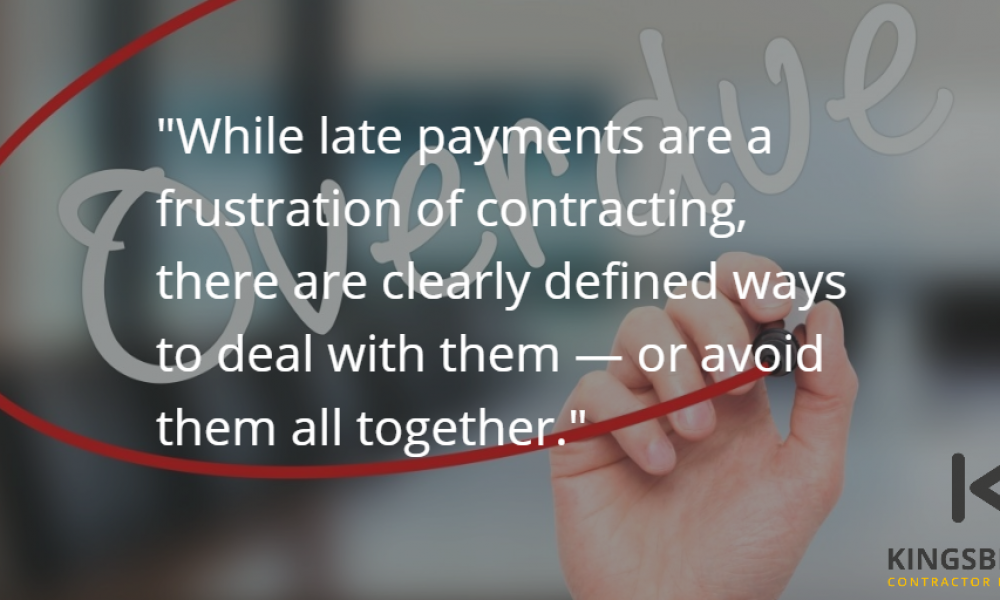How to avoid and deal with late payments
It’s one of the horrors of being a contractor: you do the work, submit your invoice, wait the required period…
It’s one of the horrors of being a contractor: you do the work, submit your invoice, wait the required period and then no payment materialises. Often, a late payment can be an honest mistake but sometimes, sadly, clients or companies may hold out on you so you need to make sure you are protected.
We’ve gathered our years of experience working with contractors to put together this guide on avoiding and dealing with late payments.
Avoiding late payments
There is actually a lot you can do to help the payment process along yourself.
- Agree payment terms before you enter into a contract. This is particularly important if you are working independently as most umbrella companies and agencies will have pre-agreed payment terms.
- Ask for a deposit. If you are performing a fixed price service, it is acceptable to ask for a deposit of anything up to 50% before beginning work. Once a client has paid a deposit to you, they are a lot more invested in the process and it can help your cash flow.
- Make sure you know who your invoices should go to and you have all of their contact details, including what should be on the invoice. There’s nothing worse than being paid late because of your own mistake.
- Make payment as easy as possible by including your payment details on your invoice. Double check all bank account numbers and sort codes are present and correct.
- If you are VAT registered, make sure you include all relevant reference numbers on your invoice.
- Even if you have agreed payment terms at the beginning of your contract, be sure to include them on your invoice regardless.
Dealing with late payments
With the best will in the world, sometimes payments will be late but there are ways you can deal with this to recover your money.
- Be proactive. If a payment is late, send a reminder email to the relevant person and then make a follow-up call. There’s no need to be forceful at this stage as nine times out of 10 it’s an honest mistake and payment will be made soon after.
- However, occasionally it’s not an honest mistake and, if a client persists in not paying, you could consider using a debt recovery firm who will send a letter on your behalf encouraging the client to pay up before further action is taken.
- If this doesn’t work, your next option would be to hire a solicitor to approach them and/or take them to court. In England and Wales, you can take claims of up to £10,000 to the small claims court to recoup them there.
- Under terms laid out by the Late Payment of Commercial Debts (Interest) Act 1998, and the EU Late Payment Directive (2013), it’s your legal right to charge interest at the rate of 8% above the Bank Rate on late payments and you can also charge reasonable debt recovery costs. It is at your discretion whether or not you choose to do this.
While late payments are a frustration of contracting, there are clearly defined ways to deal with them – or avoid them all together. Make sure your own finances are in tip-top shape so that you can spot a late payment easily, and remain calm and professional while chasing it.
You might be new to contracting or you might be something of a veteran. Either way, the friendly team at Kingsbridge can help you with your insurance needs. You can contact us via Twitter, Facebook, or LinkedIn pages, or on 01242 808740.
